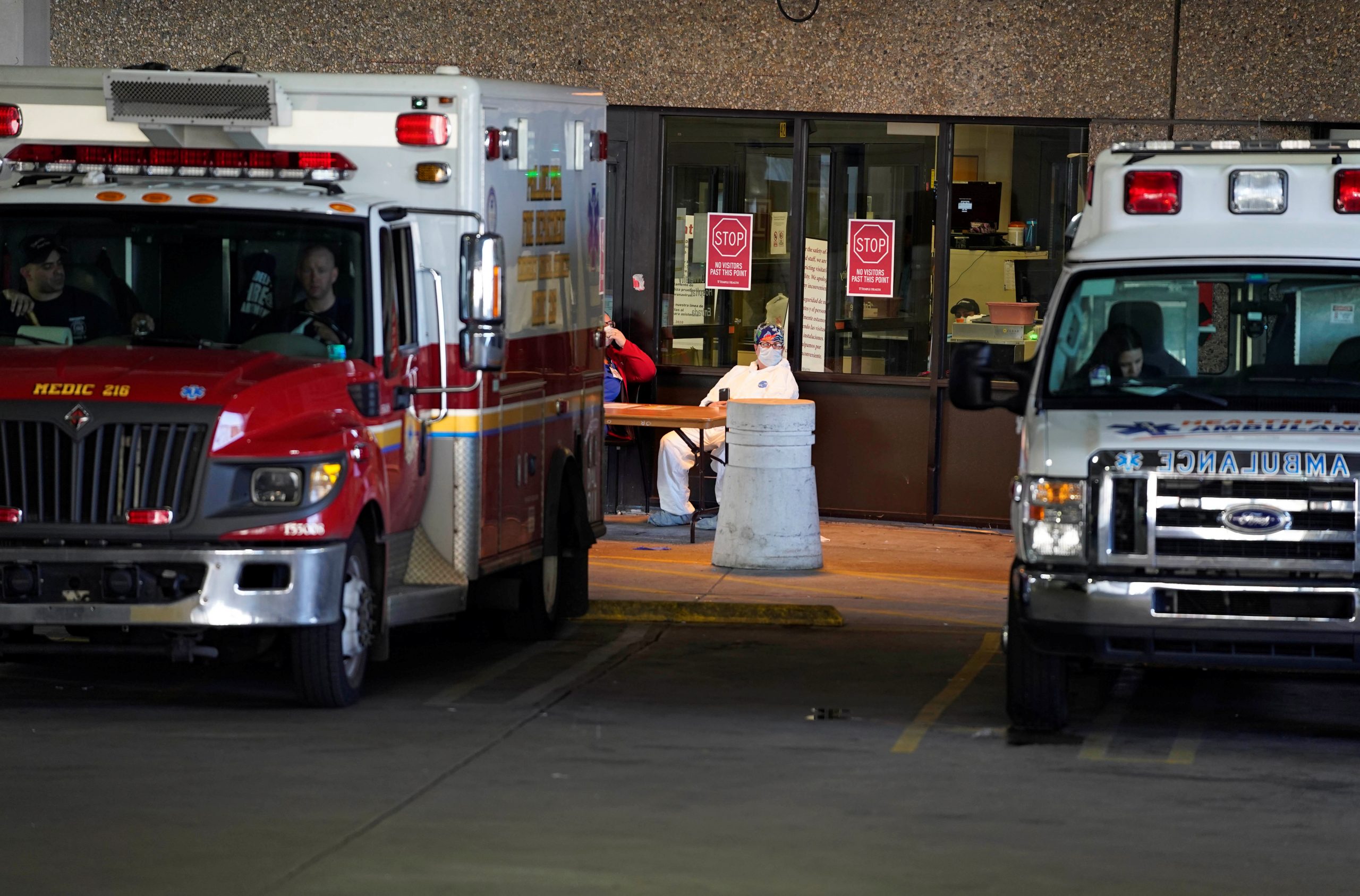The number of Americans who are immune to the coronavirus is much higher than the number of people who have been vaccinated, according to the implications of a new study.
As of Tuesday, about 44 million people have received at least one dose of a vaccine against COVID-19, according to The New York Times.
With 28.2 million cases of the coronavirus recorded in the U.S. and about 500,000 recorded deaths, more than 27 million Americans have been infected with the virus but survived, according to the Johns Hopkins Coronavirus Resource Center.
Because the virus does not produce symptoms in everyone it touches, the number of people who were infected but asymptomatic is uncertain.
In research announced by the National Institutes of Health on its website, a study from the National Cancer Institute found that people “who have had evidence of a prior infection with SARS-CoV-2, the virus that causes COVID-19, appear to be well protected against being reinfected with the virus, at least for a few months.”
“This finding may explain why reinfection appears to be relatively rare, and it could have important public health implications, including decisions about returning to physical workplaces, school attendance, the prioritization of vaccine distribution, and other activities,” the NIH news release said.
“The data from this study suggest that people who have a positive result from a commercial antibody test appear to have substantial immunity to SARS-CoV-2, which means they may be at lower risk for future infection,” said Dr. Lynne Penberthy, who led the study.
“Additional research is needed to understand how long this protection lasts, who may have limited protection, and how patient characteristics, such as comorbid conditions, may impact protection. We are nevertheless encouraged by this early finding,” she said.
In reporting about the importance of the study, the Los Angeles Times noted that the 90 percent reduction in risk for being infected that was reported by the study is only slightly lower than the 94 percent risk reduction that comes from the vaccines made by Pfizer-BioNTech and Moderna.
“I think we knew this, that immunity [after natural infection] lasts a long time,” Dr. Monica Gandhi, an infectious disease specialist at the University of California, San Francisco, told the Times. “But it’s still very exciting.”
The study did not estimate how long immunity from reinfection lasted past 90 days.
Dr. Roger Lewis, director of COVID-19 hospital demand modeling for the Los Angeles County Department of Health Services, estimated that one out of every three people in that county had immunity to the coronavirus.
In a commentary last week in The Wall Street Journal, Dr. Marty Makary, a professor at the Johns Hopkins School of Medicine and Bloomberg School of Public Health, said a combination of immunity from past infections and vaccinations means the U.S. is rapidly reaching herd immunity — the level when the virus becomes less of a public health threat.
“Cases are down 77% over the past six weeks,” he wrote. “If a medication slashed cases by 77%, we’d call it a miracle pill. Why is the number of cases plummeting much faster than experts predicted?
“In large part because natural immunity from prior infection is far more common than can be measured by testing. Testing has been capturing only from 10% to 25% of infections, depending on when during the pandemic someone got the virus. Applying a time-weighted case capture average of 1 in 6.5 to the cumulative 28 million confirmed cases would mean about 55% of Americans have natural immunity.
“Now add people getting vaccinated. As of this week, 15% of Americans have received the vaccine, and the figure is rising fast. Former Food and Drug Commissioner Scott Gottlieb estimates 250 million doses will have been delivered to some 150 million people by the end of March.
“There is reason to think the country is racing toward an extremely low level of infection. As more people have been infected, most of whom have mild or no symptoms, there are fewer Americans left to be infected. At the current trajectory, I expect Covid will be mostly gone by April, allowing Americans to resume normal life.”
Dr. Makary, Johns Hopkins/WSJ says the US will reach herd immunity in April. Watch this: pic.twitter.com/JQsp5lawat
— Martha MacCallum (@marthamaccallum) February 21, 2021
Makary said he was urged not to spill the beans.
“Some medical experts privately agreed with my prediction that there may be very little Covid-19 by April but suggested that I not to talk publicly about herd immunity because people might become complacent and fail to take precautions or might decline the vaccine. But scientists shouldn’t try to manipulate the public by hiding the truth,” he wrote.
“As we encourage everyone to get a vaccine, we also need to reopen schools and society to limit the damage of closures and prolonged isolation. Contingency planning for an open economy by April can deliver hope to those in despair and to those who have made large personal sacrifices.”
This article appeared originally on The Western Journal.

























 Continue with Google
Continue with Google